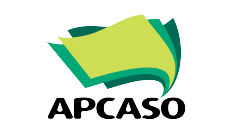Part of the Technical Review Panel (TRP)’s responsibility is to share lessons learned and key findings from the ongoing Funding Request Review Processes of the Funding Requests being submitted every cycle. The Window 2 Submission Window of the 2020-2022 Funding Cycle has the most number of Funding Requests from the Asia-Pacific region, wherein 43% of the Funding Requests have scheduled their submission under this Window. Thus, it is important to take a look at these key findings and lessons, as these will provide insights on possible Technical Assistance (TA) requests for this Funding Cycle, areas for greater involvement of key populations and advocacy towards better programme implementation, and improvement in monitoring and accountability. Below are key findings applicable to Asia and the Pacific countries.
Overall lessons
-
TRP expected a more results-focused proposals, a much higher expectation to deliver impact in addressing three diseases.
-
There is a need for differentiation in programming at country-level, tailoring program delivery to different key populations
-
Adolescent girls and young women (AGYW) programming remains unsuited and insufficient based on epidemiological context and evidence.
-
TRP encourages new technology, but this should not compromise looking into simpler alternatives that are equally effective and low-cost.
-
TRP is concerned with the worrying lack of programmatic results, and a decreasing trend in the number of civil society Principal Recipients.
-
There are still missed opportunities to minimise leakage in the HIV care cascade to meet the 95-95-95 goals, and this is due to the lack of adapting new testing approaches (“Test and Start”), non-prioritizing prevention, and minimizing leakage in specific contexts (e.g. PMTCT cascade).
-
There is sub-optimal differentiation of key populations interventions, given the insufficient consideration of intersectional vulnerabilities. For instance, transgender people are still subsumed under MSM, and lack of programming for MSM who use drugs.
-
There is absence in analysis of the entire TB case cascade that might miss interventions particularly around increasing testing and treatment uptake of people who have DS-TB and DR-TB, including TB among children and adolescents. Analysing these causes through Operational Research should be supported.
-
Innovation and new technology in TB diagnostics and care without careful understanding of the implementation and logistic landscape will prove impossible to adapt these technologies.
-
There is generally a lack of identifying interventions that would specifically address the needs of key and vulnerable populations affected by malaria.
-
TRP noted low coverage of malaria diagnosis and treatment and the use of community case management.
-
STC Policy-related flexibilities remain unclear, and applicants should clarify how co-financing commitments can be met.
-
Contracting CSOs and NGOs as recipients and implementers should remain a priority, and must receive trainings and appropriate funding to be able to sustain themselves, including in performing advocacy and watchdog roles.
-
There were Funding Requests that have identified human rights-based and gender-responsive programming as needs but lacks budgetary requirements to implement these interventions.
-
With the increasing recognition of the role of communities, there must be a clear distinction which interventions are community-based, and which are community-led.
-
Information systems and data availability that are age-disaggregated (to include disagreggation of those under 18) and gender-disaggregated must be included. Technical assistance must be extended to support tailoring of prevention and response interventions across these different groups.
Specific recommendations for applicants, technical partners, and the Global Fund Secretariat have been included in the TRP Lessons Learned document.
